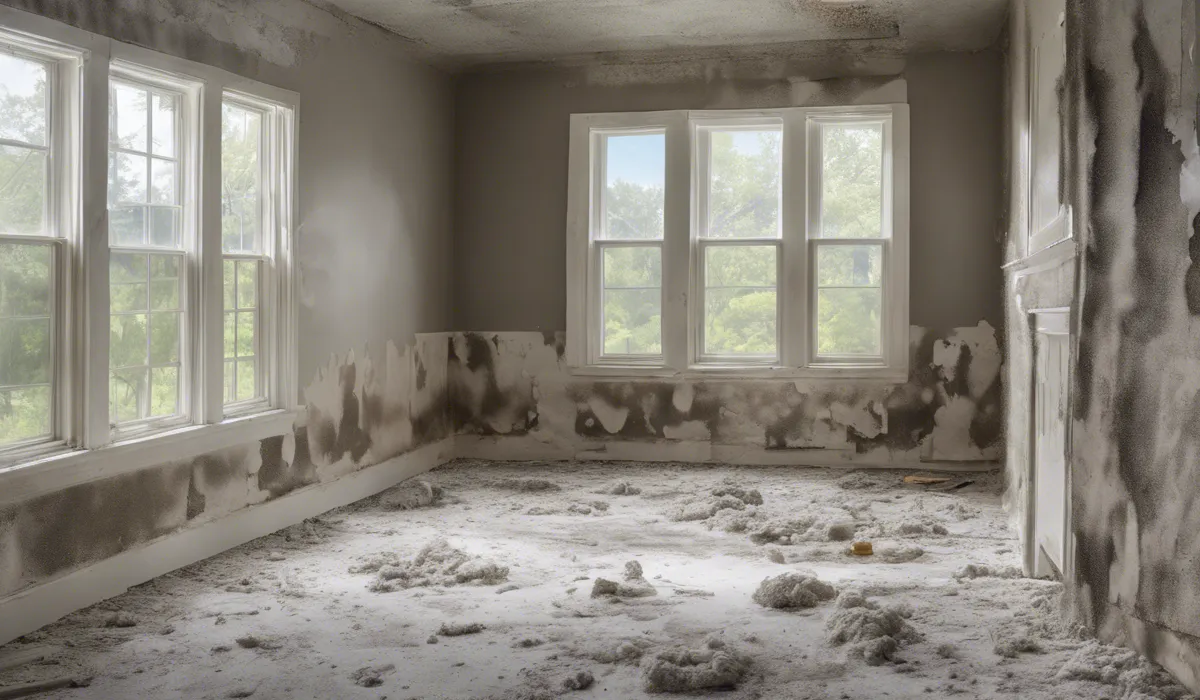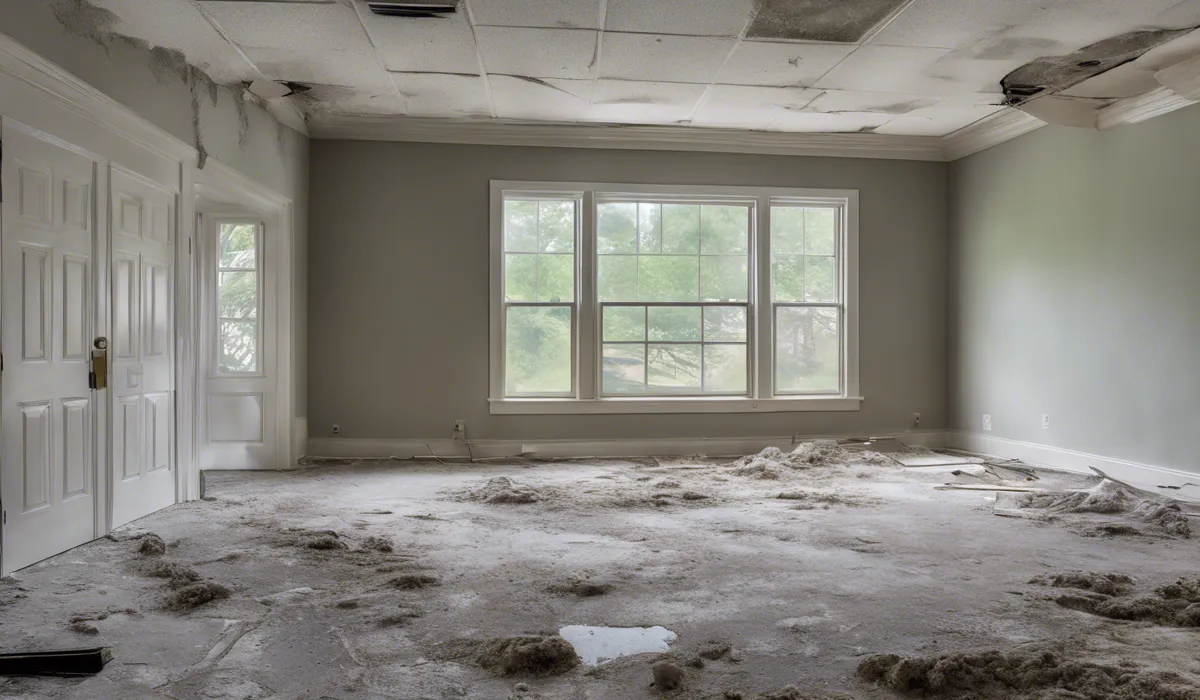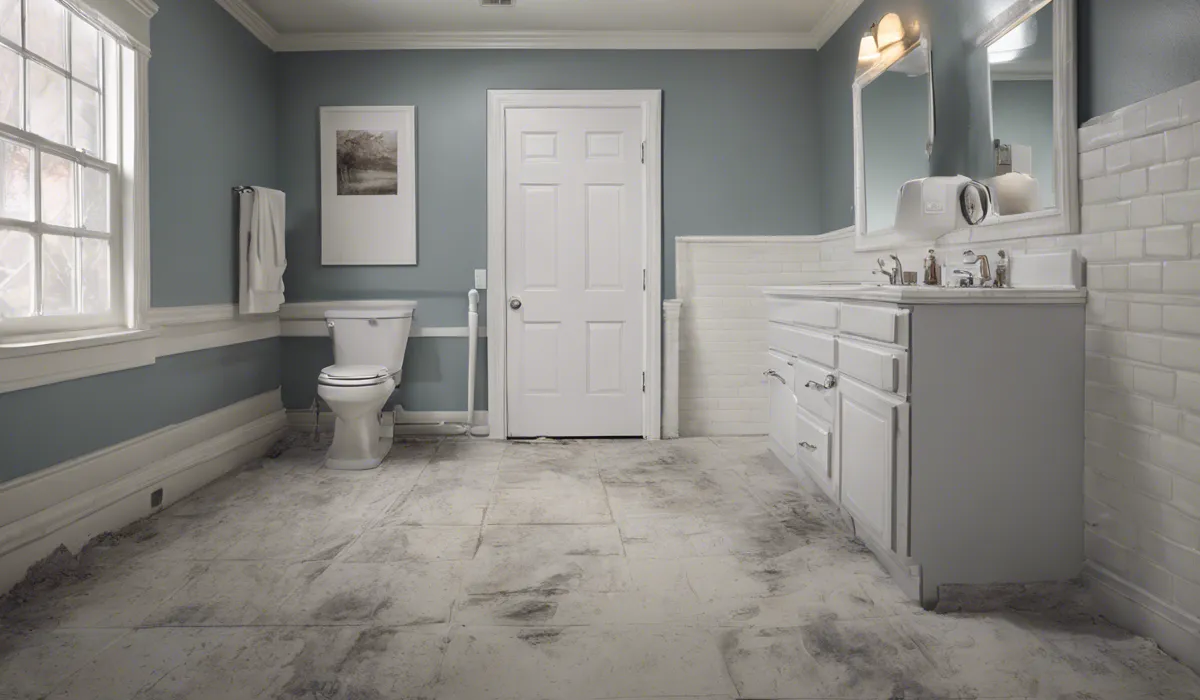A general contractor can do mold remediation if they are properly trained and certified. It’s essential they adhere to industry standards and local regulations. Always verify their qualifications and experience with mold removal before hiring.
Understanding Mold Remediation

What Mold Remediation Entails?
Mold remediation is a comprehensive process aimed at identifying, containing, and removing mold from an environment.
It involves assessing the extent of mold growth, preventing its spread by establishing containment barriers, and using specialized equipment to filter the air and remove mold spores.
Affected materials are cleaned or discarded, and the area is treated to prevent future growth. This process not only addresses visible mold but also tackles the unseen, ensuring a safe and healthy living space.
The Urgency in Addressing Mold Issues
Timely intervention is crucial when it comes to mold. Delaying remediation can lead to extensive property damage and increased costs.
The longer mold is left unaddressed, the more it proliferates, compromising the structural integrity of buildings and potentially necessitating more invasive measures to rectify the issue. Quick action minimizes damage and helps maintain the property’s value.
Health Risks of Mold Exposure
Mold can pose significant health risks, particularly to individuals with allergies, respiratory conditions, or compromised immune systems.
Exposure to mold can result in symptoms such as coughing, sneezing, skin rashes, and even more severe reactions like asthma attacks.
It is vital to mitigate mold risks to protect the health and well-being of all occupants.
Standards for Mold Remediation
Adhering to professional standards, such as those set by the Environmental Protection Agency (EPA) and the Institute of Inspection, Cleaning and Restoration Certification (IICRC), is non-negotiable in mold remediation.
These guidelines ensure that mold is effectively and safely removed, and they establish benchmarks for the necessary training, equipment, and methods to be used by professionals in the field.
General Contractors and Mold Remediation Expertise

Role of General Contractors
General contractors oversee construction and renovation projects, managing the day-to-day work on site.
Their responsibilities include coordinating with subcontractors, ensuring compliance with building codes, and delivering projects on time and within budget.
While their expertise is broad, it may not always encompass specialized services such as mold remediation.
Qualifications Needed for Remediation
To perform mold remediation, a general contractor must possess the necessary qualifications.
This typically means having undergone specific training in mold identification, removal, and prevention.
Recognized certifications, such as the IICRC Certified Mold Remediator, attest to a contractor’s competence in handling mold issues in accordance with industry standards.
Training and Certification
Training for mold remediation equips contractors with knowledge about mold biology, health implications, and appropriate removal techniques.
Certification programs, often provided by organizations like the IICRC, validate a professional’s skills and ensure they are up-to-date with the latest practices in effectively tackling mold problems.
Distinguishing General Contractors from Specialists
While general contractors manage a wide range of construction tasks, specialized mold remediation companies focus solely on mold issues.
These specialists are equipped with advanced tools and methodologies specifically designed for mold assessment and removal.
They often have more in-depth knowledge and experience dealing with complex or large-scale mold infestations.
Hiring a General Contractor for Mold Remediation: Pros and Cons

Pros of Using a General Contractor
One significant advantage of hiring a general contractor for mold issues is the convenience of a single point of contact.
This can streamline communication and project management, especially when mold remediation is part of a larger renovation effort.
Additionally, there may be cost savings when contracting a general contractor to handle multiple aspects of a project, including mold remediation.
Cons and Risks with General Contractors
However, there are potential downsides. A general contractor may not have the specialized equipment or in-depth expertise that a focused mold remediation company would offer.
Furthermore, proper insurance and liability coverage specific to mold remediation are essential to protect homeowners from potential issues arising from improper handling of mold problems.
Making an Informed Hiring Decision
To choose the right professional for mold remediation, homeowners should thoroughly evaluate a contractor’s credentials and previous experience with mold removal.
It is also crucial to understand the scope of work proposed and verify that it aligns with health and safety standards to ensure that the remediation process will be effective and protect the occupants’ health.
FAQs About General Contractors and Mold Remediation
Can a general contractor perform mold remediation?
Yes, a general contractor can perform mold remediation if they are properly trained and certified in mold removal techniques.
What qualifications should a general contractor have for mold remediation?
A general contractor should have specific training and certification in mold remediation from an accredited organization to ensure they are qualified for the job.
Is it important for a general contractor to follow industry standards during mold remediation?
Yes, it is essential for a general contractor to adhere to industry standards and best practices to effectively and safely conduct mold remediation.
Do general contractors need to know local regulations for mold remediation?
Yes, it is crucial for general contractors to be familiar with and comply with local regulations regarding mold remediation to ensure legal compliance.
How can I verify a general contractor’s qualifications for mold removal?
You can verify a general contractor’s qualifications for mold removal by asking to see their certification and checking references or reviews of their past mold remediation projects.
Final Thoughts
A general contractor can undertake mold remediation provided they have the necessary training and certification. It is crucial they comply with industry standards and local laws.
Prior to employing their services, it is imperative to confirm their credentials and mold removal expertise to ensure proper handling of the issue.
